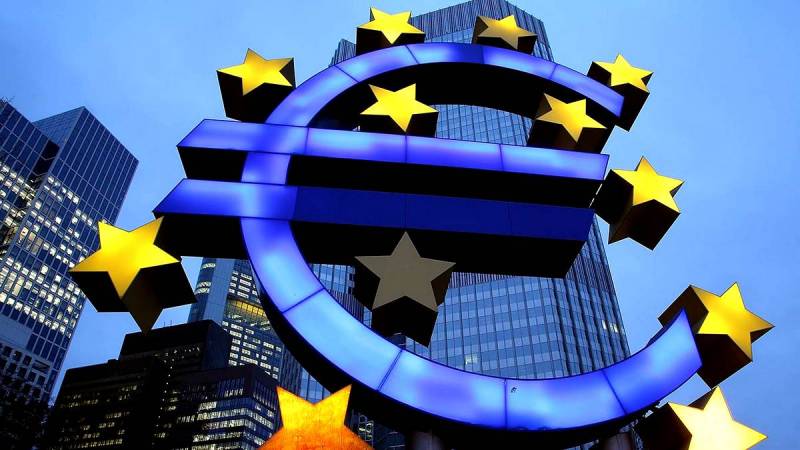The collapse of the single currency: the Germans dream of leaving the eurozone
In early June, the EU celebrated an important anniversary. Twenty years ago, in 1998, the European Central Bank (ECB) was established. This was the first step towards the creation of a single European currency, which appeared on January 1, 1999.
The birth of the euro
It was originally planned to make the German mark a pan-European monetary unit. Many countries supported this proposal, but France opposed. Then, as a compromise, the creation of a new currency, the euro, was proposed.
Since among the predecessors of the euro there were such strong monetary units as the German mark, French franc and Italian lira, the new currency quickly took a high place among world reserve currencies. It was second only to the dollar. In world financial institutions, in particular, in the Federal Reserve System (FRS), they even thought of making the euro the main world currency instead of the US dollar.
Policy ECB
The European Central Bank became the issuer and regulator of the new European currency. The headquarters of the main financial institution in Europe is located in Germany, in Frankfurt.
The central banks of individual countries survived, but began to serve as branches of the ECB. Their views and those of national governments were not taken into account in the implementation of pan-European financial policies. The only central banks that mean anything are the central banks of Germany and France.
Germany and the Eurozone
Since Germany is the most economically developed European country, it also has the greatest influence on pan-European financial policy. Many decisions made in Germany become binding throughout the eurozone.
On the other hand, Germany is required to contribute more to the pan-European cause than any other European country.
When the situation is stable, it is not felt, but in crisis conditions, the load on the economy getting taller. If a crisis occurs in any of the countries of the eurozone, then anti-crisis measures are taken collectively. Moreover, the largest investments are required from the leaders of the European Union. This primarily concerns Germany.
Ordinary German taxpayers are starting to wonder, why should they drag on other people's problems? Maybe if they themselves would deal with them, and the Germans would return to the good old mark?
And such sentiments in German society are becoming increasingly stronger. If Germany suddenly decides to leave the eurozone, the pan-European currency will lose its position in the global financial system. Therefore, the future of the euro today is foggy, it may even cease to exist over time.
The birth of the euro
It was originally planned to make the German mark a pan-European monetary unit. Many countries supported this proposal, but France opposed. Then, as a compromise, the creation of a new currency, the euro, was proposed.
Since among the predecessors of the euro there were such strong monetary units as the German mark, French franc and Italian lira, the new currency quickly took a high place among world reserve currencies. It was second only to the dollar. In world financial institutions, in particular, in the Federal Reserve System (FRS), they even thought of making the euro the main world currency instead of the US dollar.
Policy ECB
The European Central Bank became the issuer and regulator of the new European currency. The headquarters of the main financial institution in Europe is located in Germany, in Frankfurt.
The central banks of individual countries survived, but began to serve as branches of the ECB. Their views and those of national governments were not taken into account in the implementation of pan-European financial policies. The only central banks that mean anything are the central banks of Germany and France.
Germany and the Eurozone
Since Germany is the most economically developed European country, it also has the greatest influence on pan-European financial policy. Many decisions made in Germany become binding throughout the eurozone.
On the other hand, Germany is required to contribute more to the pan-European cause than any other European country.
When the situation is stable, it is not felt, but in crisis conditions, the load on the economy getting taller. If a crisis occurs in any of the countries of the eurozone, then anti-crisis measures are taken collectively. Moreover, the largest investments are required from the leaders of the European Union. This primarily concerns Germany.
Ordinary German taxpayers are starting to wonder, why should they drag on other people's problems? Maybe if they themselves would deal with them, and the Germans would return to the good old mark?
And such sentiments in German society are becoming increasingly stronger. If Germany suddenly decides to leave the eurozone, the pan-European currency will lose its position in the global financial system. Therefore, the future of the euro today is foggy, it may even cease to exist over time.

Information